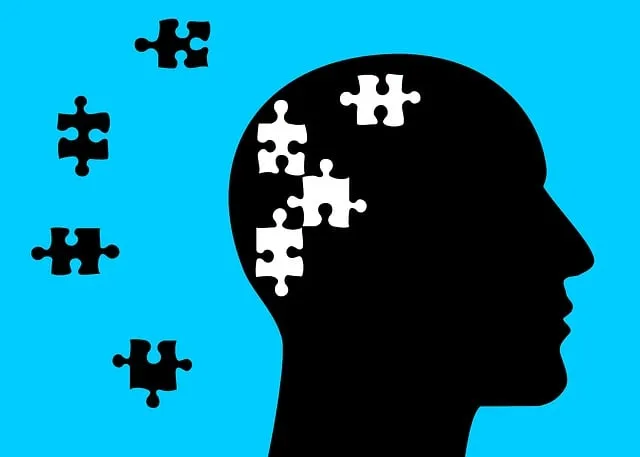In today's diverse society, cultural competence is crucial for effective mental healthcare, as demonstrated by organizations like Centennial Kaiser Permanente. By offering tailored communication strategies and risk management plans through initiatives like Stress Management Workshops, they create an inclusive environment that leverages their mental health coverage to support individuals from various ethnic, racial, and socioeconomic backgrounds. Challenges include lack of cultural competency training and language barriers, but integrating cultural perspective into care, such as mental wellness journaling exercises, enhances patient outcomes. Educational institutions should incorporate cultural competency training into curricula, and ongoing professional development programs are essential. The Centennial Kaiser Permanente mental health coverage has been instrumental in advancing culturally sensitive mental healthcare practices over the past century.
“Cultural sensitivity is an essential aspect of modern mental healthcare, ensuring equitable access to quality treatment for all. This article explores the intricate nuances of cultural competence within the mental health realm, drawing from notable examples like the Kaiser Permanente approach. We delve into barriers faced in providing culturally responsive care and present practical strategies for mental health professionals to enhance their sensitivity. Additionally, we trace the progress made in measuring cultural competence, highlighting the ongoing evolution of best practices, especially relevant in the context of comprehensive Kaiser Permanente mental health coverage.”
- Understanding Cultural Competence in Mental Healthcare
- The Kaiser Permanente Approach to Cultural Sensitivity
- Barriers and Challenges in Providing Culturally Responsive Care
- Strategies for Enhancing Cultural Sensitivity among Mental Health Professionals
- Measuring and Evaluating Cultural Competence: A Century of Progress
Understanding Cultural Competence in Mental Healthcare

In today’s diverse society, cultural competence is a cornerstone of effective mental healthcare practice. It involves understanding and appreciating the unique cultural backgrounds, beliefs, and values of individuals seeking treatment. This is particularly crucial for organizations like Centennial Kaiser Permanente, which serves a broad spectrum of patients, including those with varied ethnic, racial, and socioeconomic identities.
Cultural sensitivity goes beyond mere awareness; it equips mental health professionals with essential skills in communication strategies and risk management planning tailored to diverse populations. For instance, a Stress Management Workshops Organization might play a vital role in educating both providers and clients on cultural nuances related to stress and healing, fostering an environment where all individuals feel understood and supported under the broad umbrella of Kaiser Permanente’s mental health coverage.
The Kaiser Permanente Approach to Cultural Sensitivity

Centennial Kaiser Permanente has pioneered an approach to mental healthcare that prioritizes cultural sensitivity and inclusivity. They recognize that effective treatment requires understanding a patient’s unique cultural background, values, and beliefs. To achieve this, Kaiser Permanente focuses on both the systems and the individuals within their network. On the systemic level, they implement policies and protocols that ensure equitable access to mental health services for all communities. This includes specialized programs tailored to address specific cultural needs, such as language interpretation services, culturally relevant therapy options, and community outreach initiatives.
The healthcare provider’s cultural competency training plays a pivotal role in this approach. By educating their staff on various cultural nuances and promoting empathy-building strategies, Kaiser Permanente fosters an environment where patients feel heard and respected. This holistic commitment to cultural sensitivity not only improves patient outcomes but also enhances the overall experience of receiving mental health coverage under Centennial Kaiser Permanente. Such efforts contribute significantly to reducing anxiety relief barriers and promoting healing across diverse populations.
Barriers and Challenges in Providing Culturally Responsive Care

Providing culturally responsive care within mental healthcare practices, such as those offered by Centennial Kaiser Permanente, faces several barriers and challenges. One significant obstacle is the lack of cultural competency training for healthcare professionals. This can lead to misunderstandings and miscommunications between patients from diverse backgrounds and their caregivers, hindering effective treatment. Many mental health services struggle to accommodate varying cultural beliefs, traditions, and communication styles, which are essential aspects of a patient’s overall well-being.
Additionally, language barriers pose a challenge, especially in areas with a diverse population. Accurate translation services are not always readily available, leading to potential misdiagnoses or misinterpretations of symptoms. Depression prevention initiatives, for instance, may require tailoring to different cultural contexts to ensure relevance and effectiveness. Incorporating mental wellness journaling exercise guidance that respects and embraces various cultural perspectives can be a powerful tool in overcoming these challenges, fostering a more inclusive environment, and ultimately enhancing patient outcomes.
Strategies for Enhancing Cultural Sensitivity among Mental Health Professionals

Mental health professionals play a pivotal role in fostering inclusive care that respects and values diverse cultural backgrounds. To enhance cultural sensitivity, several strategies can be employed. Firstly, educational institutions should integrate comprehensive cultural competency training into their curricula, equipping future mental health practitioners with Mind Over Matter principles to navigate complex cultural dynamics. This includes learning about different self-care practices and mood management techniques from varied cultural perspectives.
Regular workshops, seminars, and ongoing professional development programs focused on cultural sensitivity can further strengthen these skills. Engaging in active listening, validating cultural narratives, and demonstrating genuine respect for patients’ beliefs and values are essential components of culturally sensitive care. Additionally, leveraging resources like those offered by the Centennial Kaiser Permanente mental health coverage can support professionals in their journey to provide inclusive services that resonate with diverse patient populations.
Measuring and Evaluating Cultural Competence: A Century of Progress

Over the past century, there has been a notable progression in understanding and measuring cultural competence within mental healthcare practices. Initially, the focus was on identifying cultural differences, but today’s approach is more nuanced, emphasizing assessment tools that evaluate actual behavior and outcomes related to cultural sensitivity in mental healthcare practice. The Centennial Kaiser Permanente mental health coverage has played a significant role in this evolution, funding research and initiatives aimed at improving care for diverse populations.
This shift reflects a growing awareness of the impact that cultural factors have on treatment effectiveness. By integrating mental health awareness and self-awareness exercises into training programs, healthcare professionals are better equipped to navigate complex cultural landscapes. These efforts ensure that mental healthcare becomes more inclusive and responsive to the unique needs and experiences of individuals from various backgrounds, communities, and identities.
Cultural sensitivity in mental healthcare is no longer a consideration, but an essential requirement. As we look back on the progress made over the past century, notably highlighted by the pioneering work of institutions like the Centennial Kaiser Permanente, it’s clear that culturally competent care significantly enhances patient outcomes. Despite ongoing challenges, including barriers related to provider bias and limited access to diverse training, mental health professionals have a growing array of strategies at their disposal to enhance cultural sensitivity. Continued evaluation and adaptation, inspired by models like Kaiser Permanente’s approach, are crucial to ensuring equitable mental health coverage for all.






